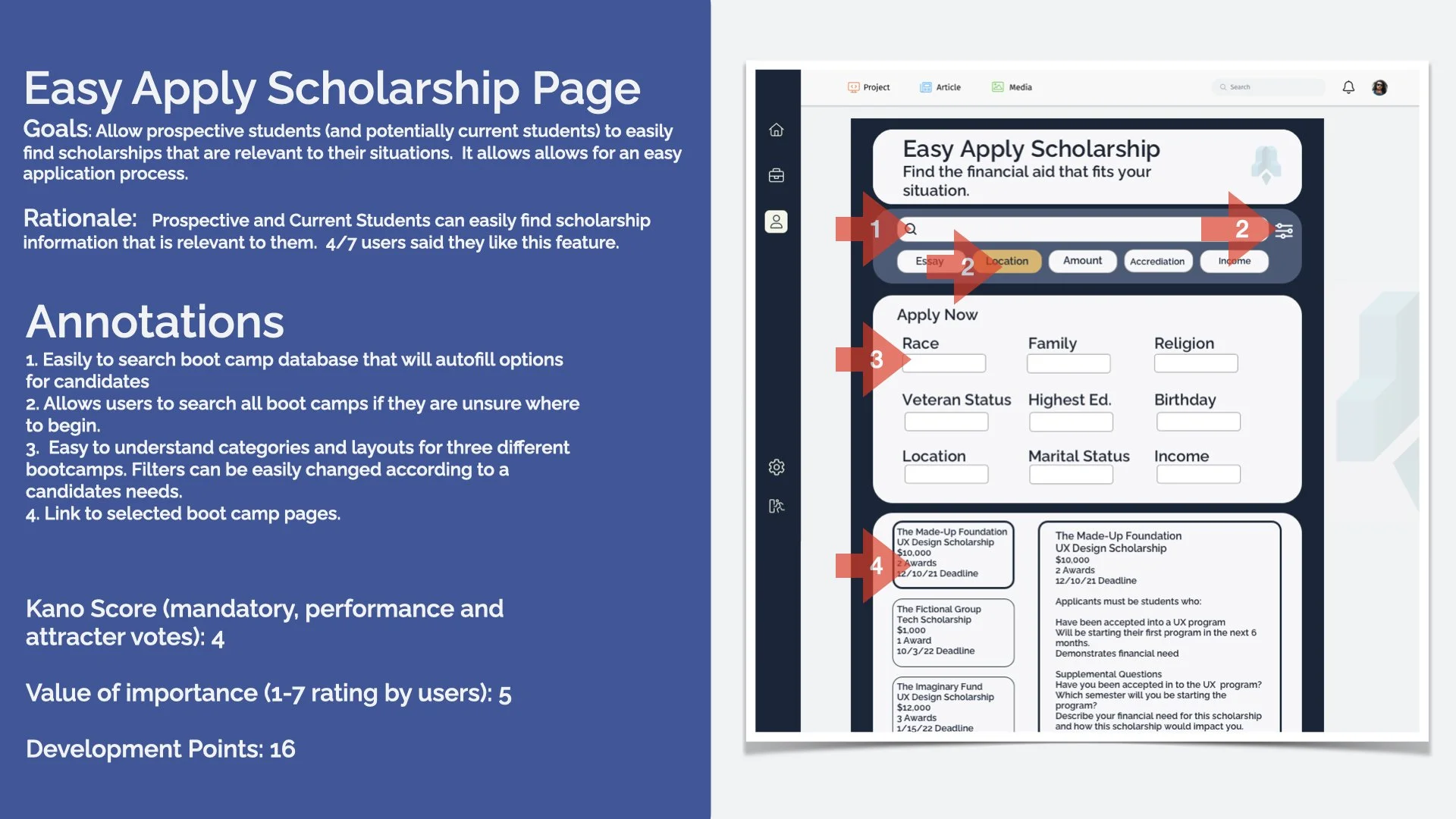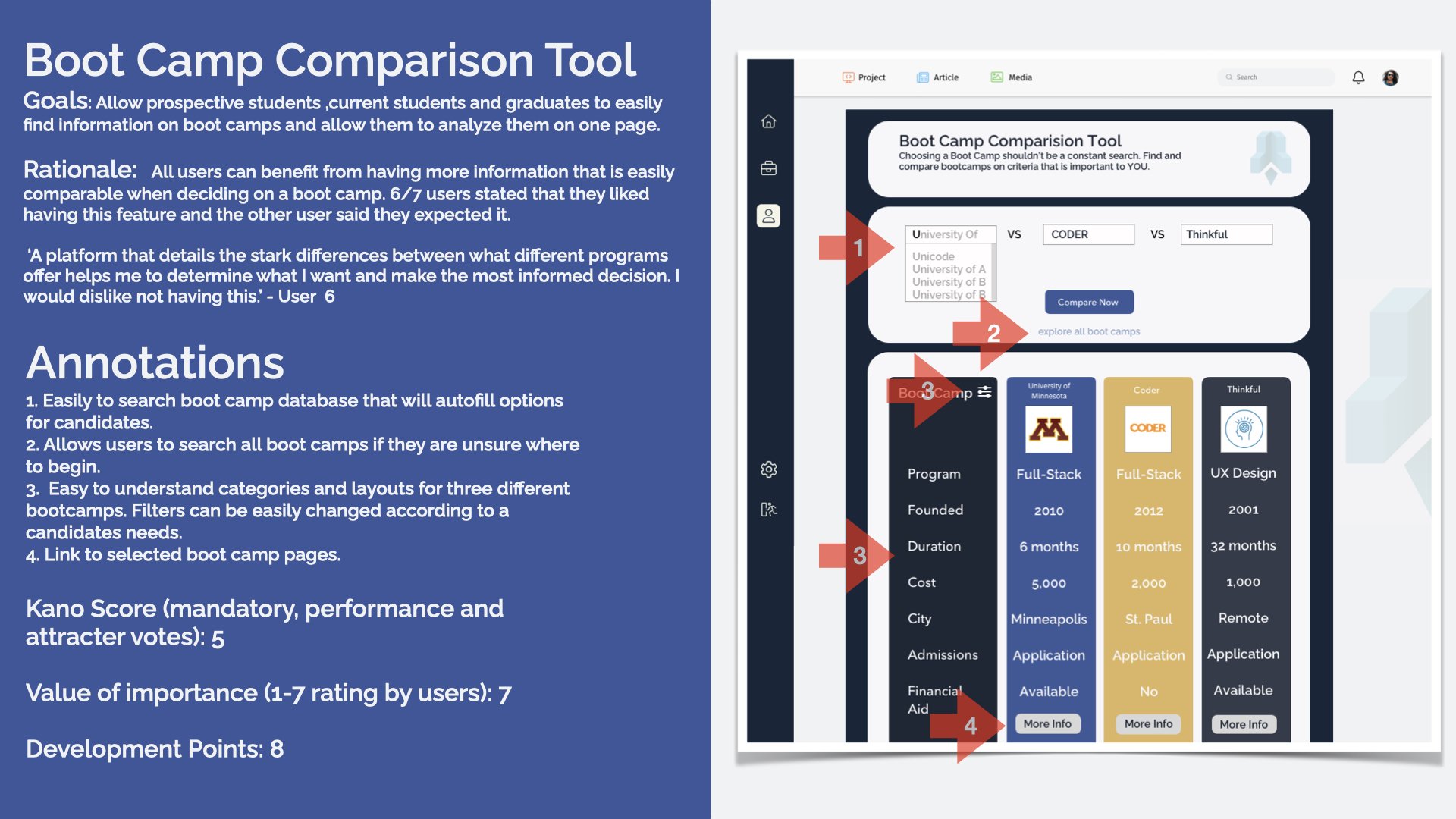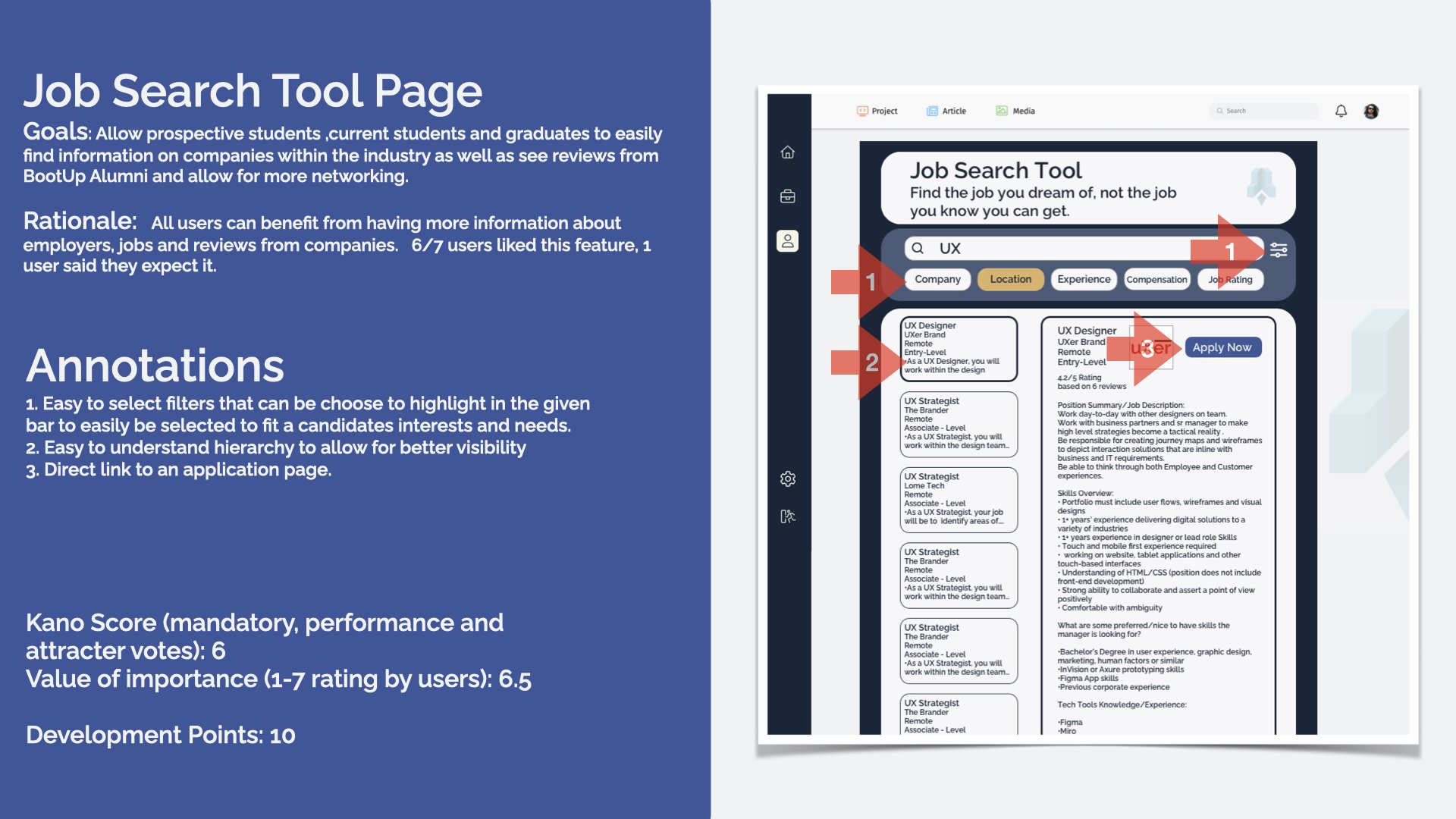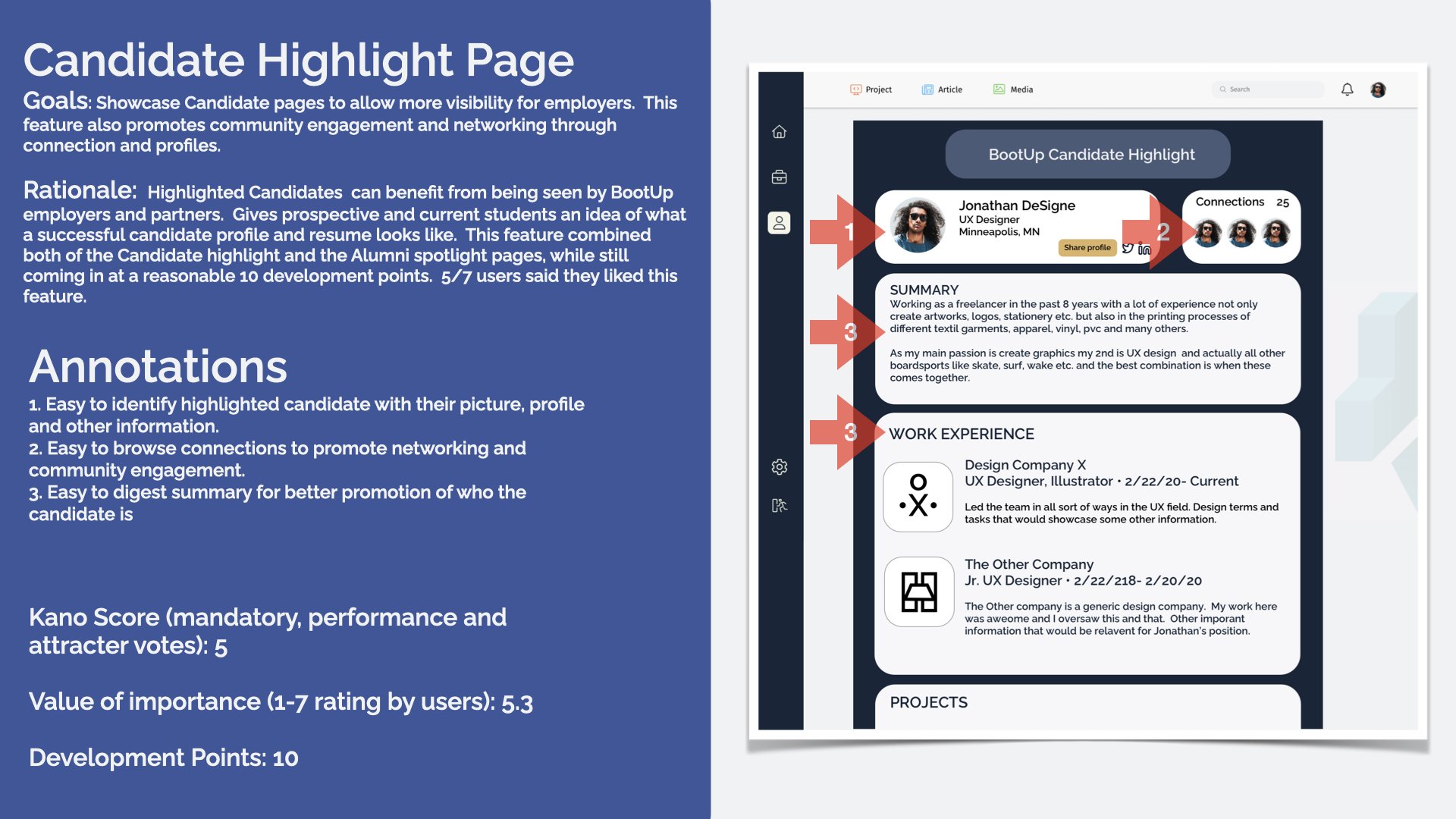JoinBootUp.com
What is BootUp?
BootUp is a website for prospective and current students to improve their lives through access to careers in tech. They work to help match people with training programs, and jobs that fit their specific skillsets, interests, and values.
The Problem?
This startup needed to build out its new website in a short timeline with some significant tech constraints. To better understand the problem a competitive audit was done, we mapped the user journey, created low-fi wireframes, used a kano analysis, and created a high fidelity prototype wireframe.
“We want to be an opportunity for folks who are stepping into tech that may not know someone, and provide resources and context for them— we need to make it accessible and inclusive so folks have more mobility. ”
— Chandler, CEO & Founder of BootUP
How can we create an accessible process for prospective students who are looking to make a change in their current career and move into the tech industry?
The Solution
After meeting with the stakeholders and conducting a kano analysis, I focused on some of the obvious pain points in the process. To focus on prospective users, I created a boot camp comparison tool— a quick scannable page that easily compares boot camps with filters that are relevant to the user. I also created a Scholarship Finder tool which simplified the process for applying for scholarships and provided prospective students with an easy solution towards financing their program. To cater to current students and recent boot camp graduates, I created a company profile page, candidate highlight page, and a job search page. The company profile page is a simple profile where job seekers can find out more about companies and how they might fit in or find a job there. The candidate highlight page helps job seekers draw awareness to their profile for potential employers. Similar to the candidate highlight page, the Job search page makes it easier for job seekers to find relevant jobs to their skills, values and interests.
Team: Christian Arias, Brian Spindler and Mike Thao
Roles: UX Researcher, UX/UI Designer, Project Manager, Video editor, and Narrator
Methods: Competitive Analysis, Journey Mapping, Low and High Fidelity Wireframing, Stakeholder Interviews, Feature Concepts, Tech Scoping, Kano Analysis
Tools: Zoom, Figma, Sketch, InVision, Google Suite
Deliverables:
Research
Skateholder Meeting
To kick off the project, we meet with the UX and Development team from BootUp to get an idea of what the company does, their future goals, and who their primary and secondary users were. This information led us to better set expectations and understanding for both parties.
Competitive Analysis
To begin our research, our team conducted a competitive audit to gain better insight into boot camp information, job search tools, and resume builders.
Journey Map
Through our stakeholder meeting and competitive analysis, a Journey Map was created to show the path a frustrated retail worker might take when they are considering a switch into a tech-related career. We focused on pain points and tasks throughout the process for prospective students as they move through the BootUp experience all the way to an employer. By creating this journey map, we were able to create empathy with users and began to assess how we can improve their experience.
Low Fidelity Prototypes
After evaluating the information from our journey maps, competitive analysis, and stakeholder meetings, I brainstormed five feature concept ideas that could potentially be used on the website. We then met with the BootUp development team (only two people) to gain an understanding of how long each feature set would take. Our team was allocated 50 points (1point= half a day of work) for the new features concepts. With these constraints in mind, 10 feature concepts were prioritized and used for a kano analysis methodology.

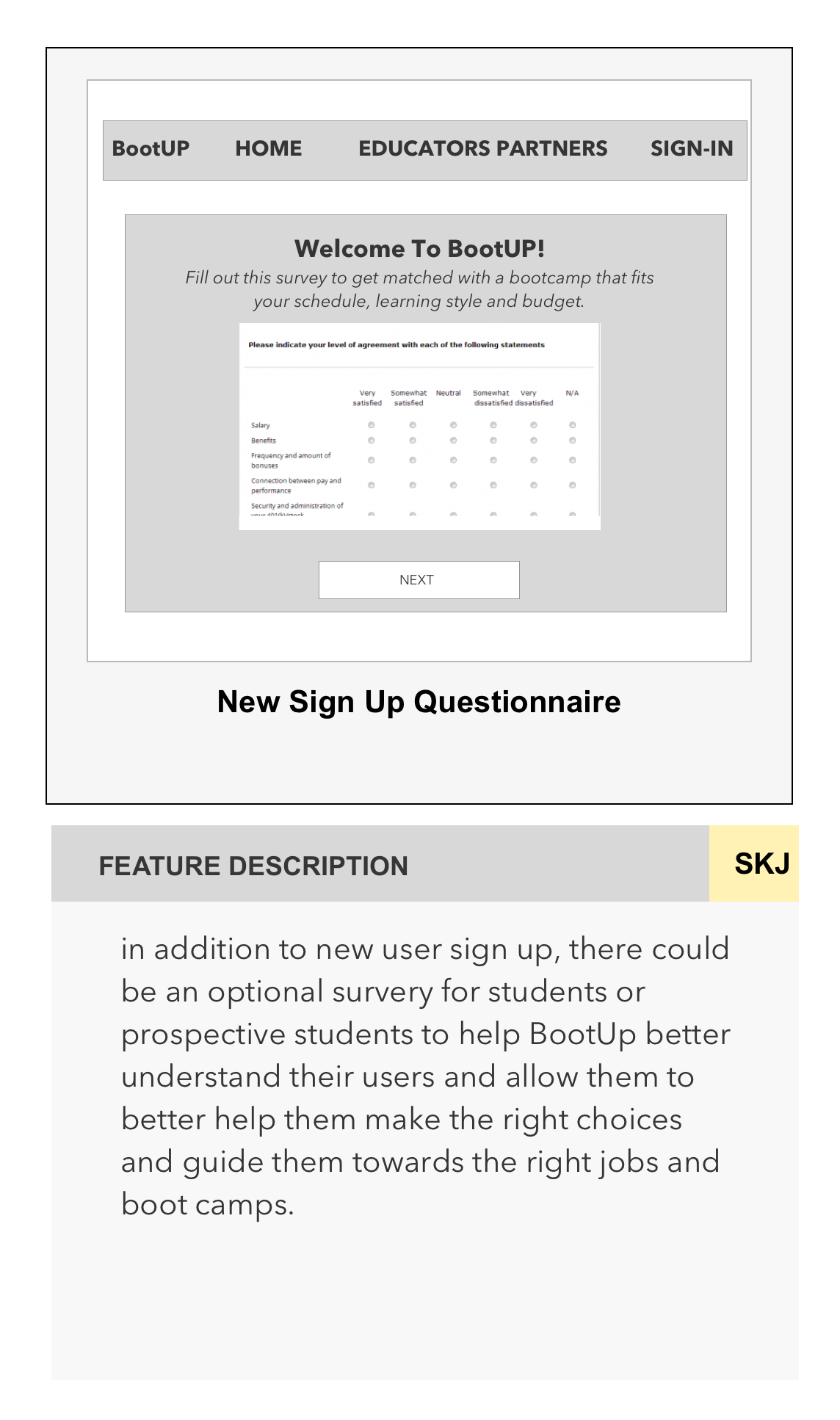
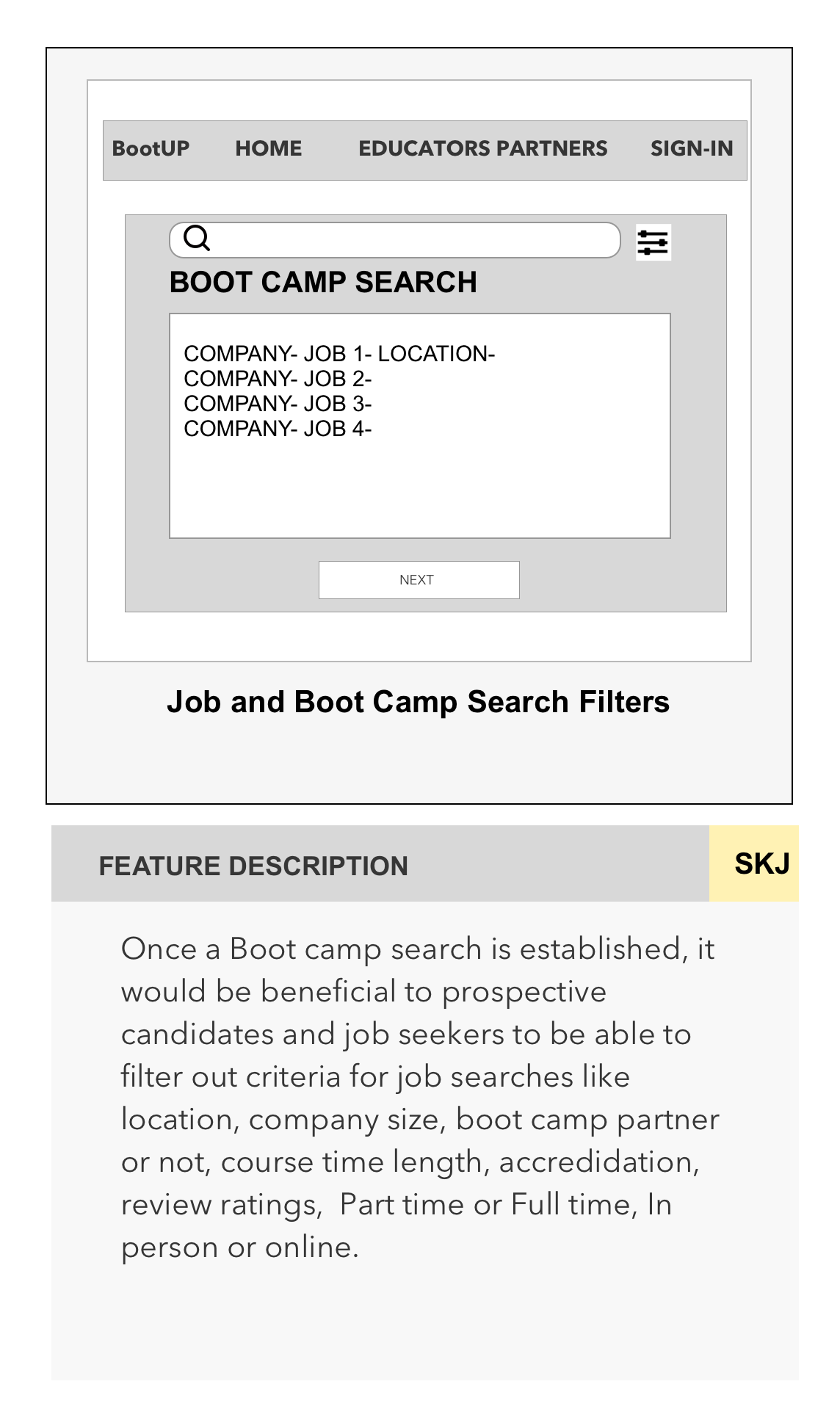

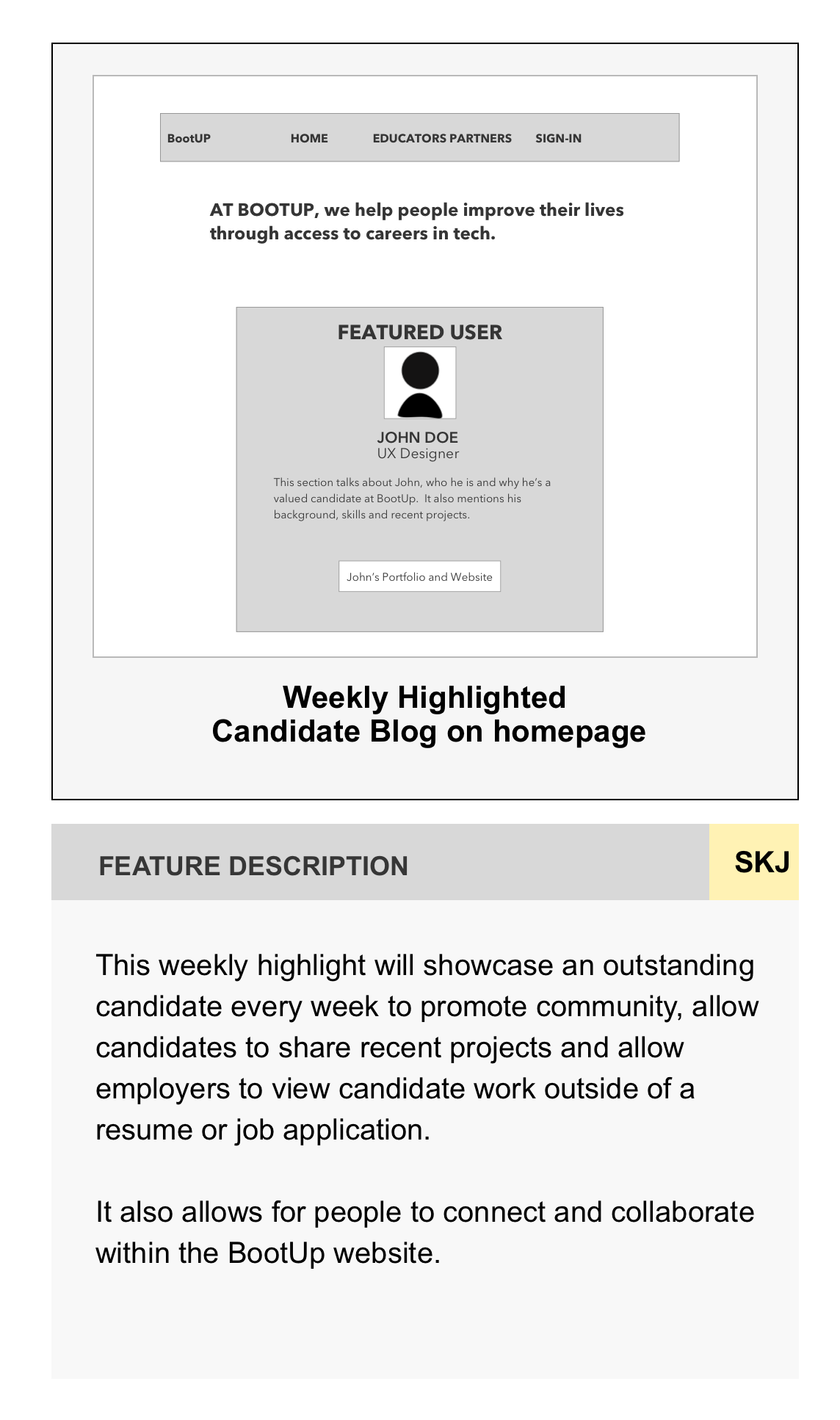
Kano Analysis
Our team then completed a Kano Analysis to better understand and prioritize the features that we wanted to create for the BootUp website. Tech constraints were also considered as an important variable as we made our decisions.
Journey Map Revision
With our low fidelity prototypes selected for further development and our kano analysis completed, we then revised our journey map to better reflect how we hoped these features would impact the user’s journey.
Prototyping
After our Kano Analysis was done, a handful of features were created for the BootUp website and were annotated to show the research findings behind our prototypes.
Future Recommendations
Future work would include conducting additional usability testing for the proposed new features to identify if the primary users are able to complete the tasks assess and further explore additional features to make everything more accessible.







